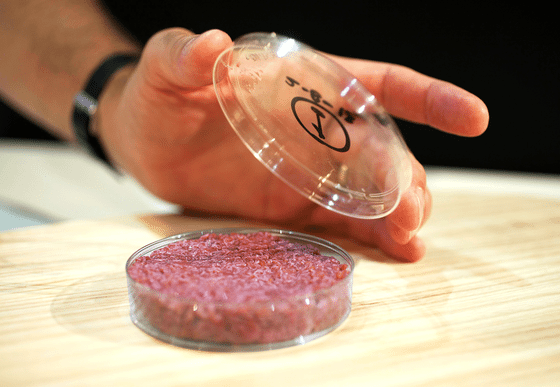JBS, the world’s largest conventional animal protein producer, has started construction on what it claims will be the world’s largest cell-based meat manufacturing facility.
The company’s interest in cell-based meat production appears to be a hedge against its vast production of beef, pork, chicken, lamb and new proteins like salmon, using conventional means, across North and South America, Australia and Europe.
 JBS’s Spanish subsidiary, BioTech Foods has started construction of its first commercial-scale plant for cultivated meat. Located near San Sebastian, the project is expected to start production in mid-2024.
JBS’s Spanish subsidiary, BioTech Foods has started construction of its first commercial-scale plant for cultivated meat. Located near San Sebastian, the project is expected to start production in mid-2024.
Biotech Foods claims it will be the world’s largest cultivated meat plant, with first stage annual production of around 1000 tonnes of cultivated beef. Plans are to expand capacity to 4000t annually. To put that into some context, 4000t represents around nine days’ production out of JBS’s Dinmore processing plant near Brisbane, alone, at current manning levels.
Experts, like Australian microbiologist Dr Paul Woods, claim that while culture of animal cells for food production is technically possible, doing it at scale, in any economically meaningful way, is the real challenge.
In November 2021, JBS announced its purchase of Biotech Foods, including a US$41 million budget to build a new facility in Spain. This move along with the launch last year of an R&D centre in Brazil, marked JBS’s entrance into the cultivated protein space.
The new 11,000sq m Spanish complex will also host the company’s R&D department, staffed with biologists, biochemists and biotechnology scientists to research cell lines, culturing media, and biomaterials in order to ramp-up cultivated meat production to an industrial scale. Eventually the business plans to have up to 150 employees.
Earlier, the chief executive officer of BioTech Foods said the new plant would allow the company to increase production capacity to achieve the next phase of expansion.
“This will be a very important milestone for us, since it will mean a great step in the development of our technology and will allow us to take the definitive leap with the release of the product on the market,” he said.
“We are in an emerging market with great growth prospects for the next decade and we are planning our development so that we can embrace all this potential,” he said.
BioTech plans to gradually increase its production capacity to keep up with the rising consumer demand. The company has identified Australia, Brazil, the European Union, Japan, Singapore, and the United States as the key markets.
“The new BioTech plant puts JBS in a unique position to lead the segment and ride this wave of innovation,” JBS USA’s head of value-added business, Eduardo Noronha said.
“We believe that this new plant will give us a significant competitive advantage in this emerging market, in addition to facilitating the progressive increase in production capacity – something that will allow us to respond to both current and future market needs globally,” the BioTech Foods CEO said.
“This market is expected to experience tremendous growth in the next decade, with sources indicating that by 2032 12pc of the animal protein consumed in the world will come from this type of more balanced food production system.”
The challenges and opportunities of cultivated meat
Currently, one of the great challenges for cultured meat is production in adequate volume and cost, the company said.
“The new BioTech Foods plant will allow the establishment of a highly efficient cultured meat production line to respond to both this challenge and the global need for a more balanced food production system that provides sustainability benefits.
Meeting textural challenges
Earlier, BioTech Foods published research comparing the texture of cultivated and conventional meat proteins.
The report, titled ‘Application of texture analysis methods for cultured meat characterisation’ in the journal Nature Scientific Reports, looks at the textural properties of cultivated meat to help mimick the sensory properties of conventional meat products including sausage, turkey and chicken breast.
Results showed that cultivated meat samples could compare favourably with commercial products.
“The texture characteristics for the cultivated meat studied, show values within the range of commercial products,” it said.
Proposed meat alternatives had a wide portfolio of flavours and textures, with different shapes, and they could be eaten on their own or added to items like pasta, soup or salads.
“Moreover, for the development of new food products, characterisation techniques could facilitate the integration of meat alternatives into already existing recipes and accelerate customer acceptance,” the report said.
